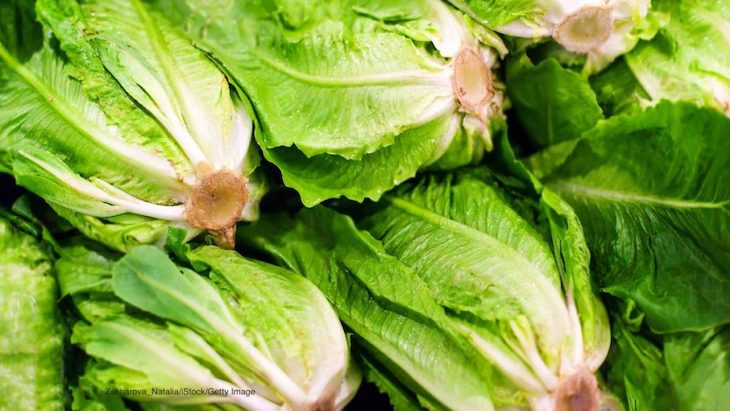Last night, the FDA released information about a secret E. coli O157:H7 romaine lettuce outbreak that apparently sickened 23 people in 12 states. The outbreak is now over, according to a statement by the FDA.

FDA Commissioner Frank Yiannas said in a statement, “Today, we are sharing news of a recent E. coli O157:H7 outbreak that was likely associated with romaine lettuce. We do not believe there is a current or ongoing risk to the public and we are not recommending the public avoid consuming romaine lettuce.
“However, our investigation, along with previous outbreaks linked to romaine, reinforces the recommendations that we have made to the leafy green industry: producers must continue to review their practices and improve traceability to enhance food safety. We remain committed to improving the safety of leafy greens and know that all levels of government and the supply chain from farm to retail must continue to work together to keep consumers safe.”

Attorney Eric Hageman represents clients sickened with food poisoning. Contact him by calling 1-888-377-8900 or 612-338-0202.
Food safety attorney Eric Hageman said, “We rely on food suppliers to produce safe food and we rely on the government to let us know when that is not the case. Outbreaks like this, with the public in the dark, are what happen when everyone doesn’t do their part.”
The statement reads, “The FDA and the U.S. Centers for Disease Control did not identify actionable information for consumers during this investigation. Additionally, when romaine lettuce was identified as the likely source of the outbreak, the available data at the time indicated that the outbreak was not ongoing and romaine lettuce eaten by sick people was past its shelf life and no longer available for sale. The FDA is communicating details about the outbreak at this time to help ensure full awareness by the public and to highlight the ongoing importance of industry actions to help ensure the safety of leafy greens. Federal health officials do not believe there is a current or ongoing risk to public health.”
The news of this outbreak comes in the wake of two large E. coli O157:H7 outbreaks linked to romaine lettuce in the United States in 2018 that sickened hundreds of people. The first outbreak ended in June 2018. At least 210 people in 36 states were sickened, 96 people were hospitalized, and five people, who lived in California, Arkansas, Minnesota, and New York, died. That was the sixth largest food poisoning outbreak of 2018. The second E. coli O157LH7 outbreak linked to romaine lettuce sickened at least 62 people in 16 states in late fall and winter 2018.
The Centers for Disease Control and Prevention notified the FDA of this latest illness cluster in mid-September 2019 and a traceback investigation was launched. The case count by state is: Arizona (3), California (8), Florida (1), Georgia (1), Illinois (2), Maryland (1), North Carolina (1), Nevada (1), New York (1), Oregon (1), Pennsylvania (2) and South Carolina (1). The illness onset dates range from July 12, 2019 to September 8, 2019. Eleven people were hospitalized; no deaths were reported.
No illnesses were reported after the CDC began investigating the outbreak on September 17, 2019. There have been no new cases since September 8, 2019.
Government officials visited farms in California’s central coast region that were identified during traceback. The outbreak strain was not identified in any environmental samples. And the investigation did not identify a common source of point where the contamination occurred.
The statement ends with these words: “The FDA remains committed to improving the safety of leafy greens and traceability from farm to fork.”




